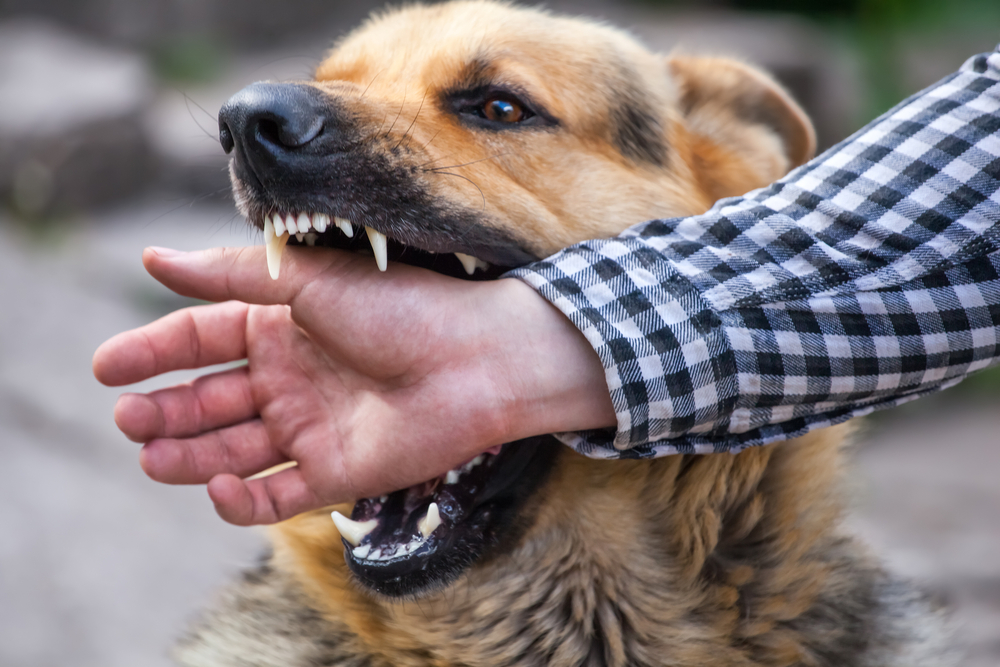Our canine companions fill our lives with love, joy, and an unwavering loyalty that knows no bounds. However, the warmth of that furry embrace can sometimes turn into a health concern when man’s best friend becomes a biter. Dog bites are not just painful; they can pose significant health risks.
Did you know that a seemingly harmless nip can lead to infections that have far-reaching consequences? From bacterial invaders to viral assailants and fungal foes, dog bites can open the door to various types of infections. These infections are not only painful but, if left untreated, they can become life-threatening. But there’s more to this story.
According to a Dog Bite Lawyer Brett E. Dressler, many places witness numerous unreported dog bite cases each year. Whether it’s due to a lack of awareness regarding the potential health risks associated with these incidents or other reasons, many cases remain hidden from official records.
Alarmingly, children are among the most frequent victims of dog attacks. Their natural curiosity and often unwitting interactions with dogs make them particularly vulnerable. By shedding light on potential infections stemming from dog bites, we hope to empower both adults and children to recognize the dangers and take preventative measures.
Stay with us as we delve into the hidden world of infections that may be lurking behind those innocent-looking canine teeth.
Bacterial Infections from Dog Bites
You can easily contract bacterial infections from dog bites, for as they bite, their sharp teeth can break the skin, introducing bacteria into your body.
Cellulitis: This infection affects the skin and underlying tissues, causing redness, swelling, and pain.
Pasteurella: Can result in a painful, painful, swollen area at the site of the bite.
If left untreated, these infections can spread and lead to more serious complications, such as abscesses or sepsis.
To prevent bacterial infections from dog bites, clean the wound thoroughly with soap and water, apply an antibiotic ointment, and seek medical attention if the wound becomes red, swollen, or painful.
Viral Infections from Dog Bites
While bacterial infections are more common, several viral infections can also be transmitted through dog bites.
One such viral infection is rabies, which is a serious and often fatal disease. Rabies is transmitted through the saliva of an infected animal, and if left untreated, it can cause inflammation of the brain and ultimately lead to death.
Another viral infection that can be transmitted through dog bites is herpes simplex virus (HSV). HSV can cause painful sores and blisters on the skin, as well as flu-like symptoms.
Seek medical attention after a dog bite to rule out any potential viral infections and receive appropriate treatment.
Fungal Infections from Dog Bites
Viral infections may not be the only concern after a dog bite; fungal infections can also pose a threat. When a dog bites you, it can break the skin and introduce fungus into your body.
Sporotrichosis is a common fungal infection caused by a fungus that lives in soil and on plants. It usually starts as a small bump or sore at the site of the bite and can spread along the lymph nodes.
Another fungal infection, candidiasis, is caused by an overgrowth of yeast called Candida, which can thrive in warm and moist environments. It can cause redness, itching, and a rash around the bite area.
If you suspect a fungal infection after a dog bite, seek medical attention to receive the appropriate treatment.
Symptoms and Signs of Infections
If you experience redness, swelling, or pus around the bite area, it may be a sign of infection. These symptoms can occur within hours or days after being bitten by a dog.
Infections from dog bites can be caused by various bacteria, including staphylococcus and streptococcus. Other signs of infection may include warmth or tenderness around the wound, a fever, or swollen lymph nodes.
It’s important to seek medical attention if you notice any of these symptoms, as untreated infections can lead to more serious complications. Your healthcare provider may prescribe antibiotics to help clear the infection and prevent it from spreading. They may also clean the wound and give you a tetanus shot if necessary.
Remember, early detection and treatment are key to preventing further complications from dog bite infections.
Treatment Options for Infections from Dog Bites
Treatment options for infections from dog bites vary depending on the severity of the infection.
In mild cases, your doctor may prescribe oral antibiotics to fight the infection. It’s important to take the full course of antibiotics as prescribed, even if you start feeling better, to completely eliminate the infection.
In more severe cases, you may need to be hospitalized for intravenous antibiotics and additional medical care including cleaning the wound thoroughly and tissue removal.
Some infections may necessitate tetanus shots or rabies vaccinations.
Remember, early and appropriate treatment can help prevent the infection from spreading and minimize the risk of complications.
Conclusion
Dog bites, often a startling and unexpected event, can cast a shadow of uncertainty over a beautiful companionship. Yet, beyond the initial pain and shock, there is the less visible, but equally significant concern: the risk of infections that can follow.
Dog bite infections have revealed their potentially serious consequences – bacterial, viral, and fungal infections that can disrupt lives and health.
However, awareness and vigilance can be your greatest allies. Prompt medical attention, especially if you notice signs of infection for a smoother recovery and minimizes complications.
Despite these risks, let’s not forget the countless joyful and affectionate moments that dogs provide. The warmth of a nuzzle, the wagging tail, and the loyalty that surpasses words are irreplaceable.
As you enjoy the enriching bond between humans and their loyal canine companions, always remember to practice caution and treat every dog, regardless of size or familiarity, with the respect and care they deserve.
By doing so, you not only protect yourself but also honor the beautiful connection that makes dogs our cherished friends and family members.
